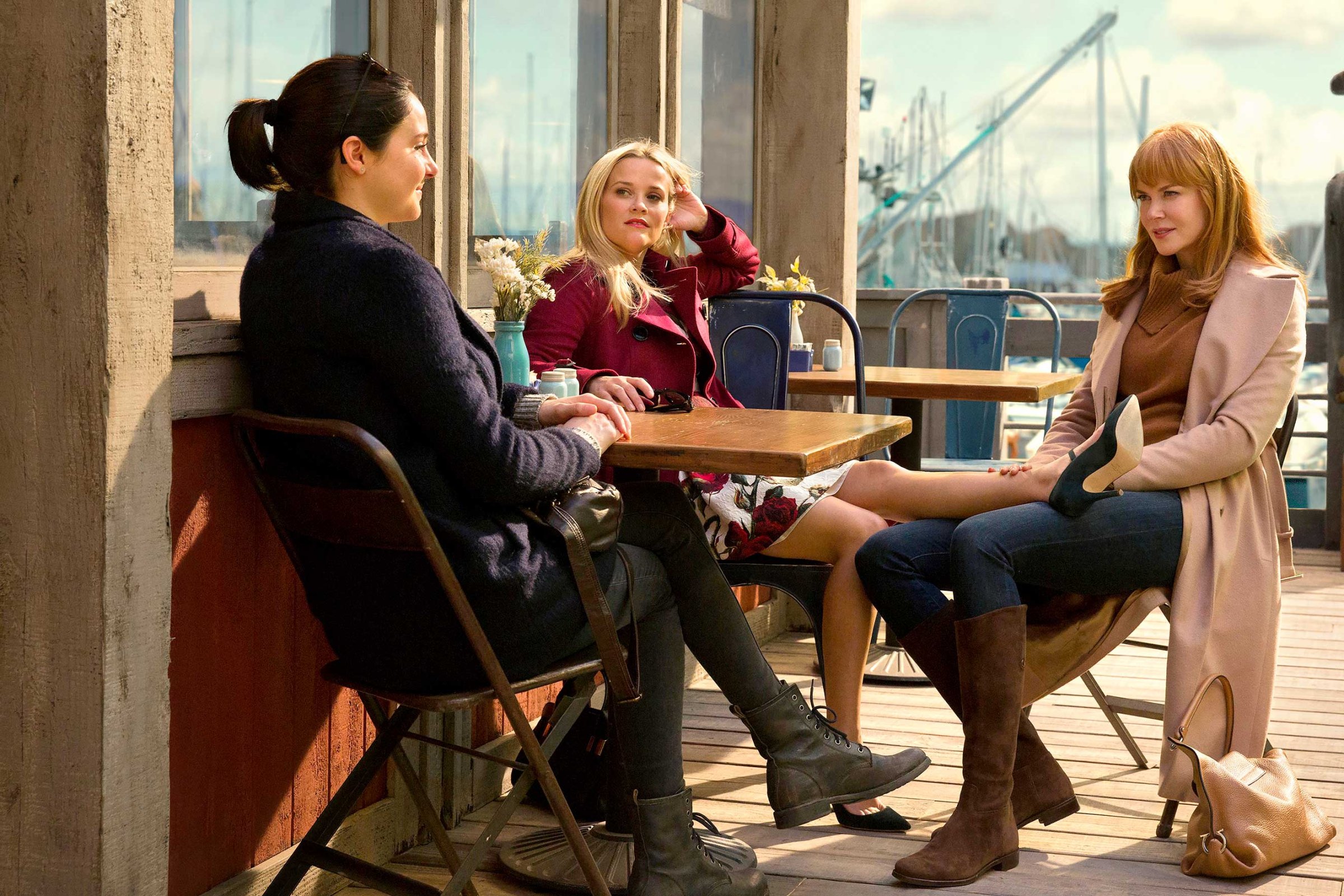
There’s something particularly dreamlike about the California of HBO’s new limited series Big Little Lies and the Netflix comedy Santa Clarita Diet. The two shows have divergent tones but a unified vision of the state’s suburbs as the place comfort gives way to confrontation. Lies stars Reese Witherspoon and Nicole Kidman, playing neighbors and friends in easy, jumbo-wineglass comfort. Their schedules are breezily blank between school drop-off and pickup. On Netflix, Drew Barrymore has slightly more going on, but her character is still mostly sleepwalking through life.
This vision of California–the one where Joan Didion smoked her way through a nameless depression, Anne Bancroft picked up Dustin Hoffman as a form of mild entertainment, and Transparent’s Pfefferman family lie relentlessly to themselves–has become familiar to the point of cliché: California as a place people go to remake their lives but ultimately get tranquilized by the sun. Both Big Little Lies and Santa Clarita Diet begin with these old tropes–and manage to get somewhere vividly new. Diet does so by employing bold, splashy comedy, Lies by using heightened drama.
On Big Little Lies, based on Liane Moriarty’s novel of the same title, we’re watching the last months of someone’s life. (The show flashes forward to depict the aftermath of a main character’s tragic fate, but we don’t know who.) Madeline (Witherspoon), for all her outer sunniness, is wrecking her marriage through her envy of her ex’s new yogini wife (Zoë Kravitz). Playing Celeste, Kidman, as coolly glam as she’s been since Eyes Wide Shut, has even darker secrets: we see her husband grab her a little too hard and, later, much worse. But the pals are unable or unwilling to get deep with each other, or to admit too much to their new friend Jane (Shailene Woodley), a young single mom who has recently arrived in town. Eventually that begins to change. Their halting movement toward honesty–marked with little self-deprecations–is touching precisely because it’s so uncomfortable to watch.
While Big Little Lies, directed by Wild’s Jean-Marc Vallée, proceeds with woozy stateliness, Santa Clarita Diet uses violence to make its points with startling speed and intensity. Very early on, we learn that Sheila (Barrymore), a realtor who works with her husband Joel (Timothy Olyphant), has become a zombie. Her relentless drive for the taste of human flesh reveals just how staid her life had been before. Having left behind obsessive concern about her neighbors’ opinions in favor of late-night prowling, Sheila, undead, is finally alive. This is a show that’s emboldened by its oddity–you’ll either love its humor, merging body horror with Barrymore’s new agey persona, or be repulsed. Either way, Barrymore is incandescent as a person waking up to the possibilities of life.
All these women are on a “journey,” whether a picaresque goof or one imbued with vise-like tension. But both shows find something new amid cliché. Big Little Lies depicts even the school pickup line with a lush splendor that grants the revelations of its story substance and weight; Santa Clarita Diet rips the pace and style of network sitcoms to tell a story far outside the sitcom norm. These shows manage to innovate as quickly as their characters. California may be a place where it’s easy to delude oneself. But it’s also the staging ground for the most American pursuit: reinvention. At least on television.
More Must-Reads from TIME
- Inside Elon Musk’s War on Washington
- Meet the 2025 Women of the Year
- The Harsh Truth About Disability Inclusion
- Why Do More Young Adults Have Cancer?
- Colman Domingo Leads With Radical Love
- How to Get Better at Doing Things Alone
- Cecily Strong on Goober the Clown
- Column: The Rise of America’s Broligarchy
Contact us at letters@time.com